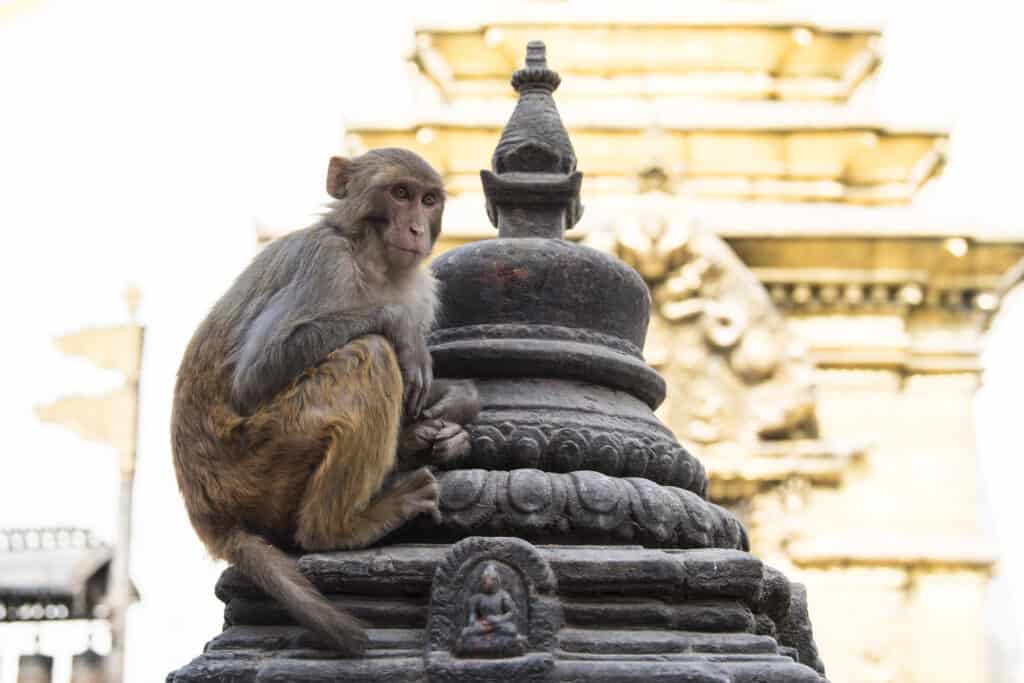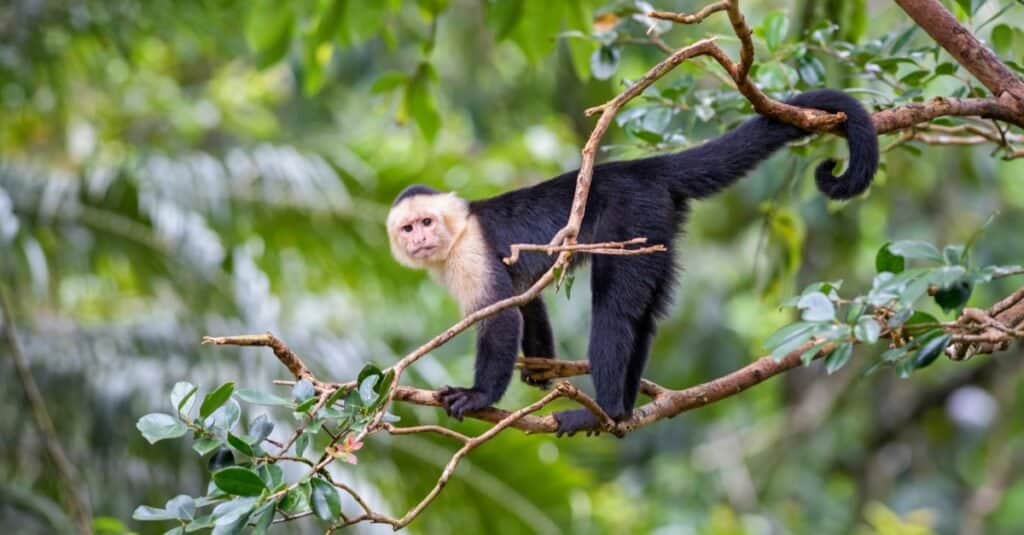Watch These Pesky Monkeys Steal People's Phones and Hold Them Hostage
The Bartering Robber Baron Monkeys of Bali Are an Inspiration to Any Pirate!
The exciting and hilarious video at the top of this page showcases some cunning monkey criminals! Long-tailed macaques, also known as crab-eating macaques, share the sacred temples of Bali, Indonesia with the tourists crawling the place. The macaques were here before even the temple, and clearly feel it’s their right to tax these newcomers. These monkeys steal any possession a tourist isn’t keeping a close guard of! Hats and sunglasses, both of which have an endless supply among the tourists!
But these macaques aren’t just stupid monkeys thinking they can eat these inedible objects. No, its a careful and intentional gambit. These macaques are in the business of hostage bargaining! Once they’ve snatched a hat or pair of glasses, they can dart off and out of reach! For anyone who wants to keep their accessories, an offer needs to be made. Something to eat in exchange for the tourists’ possessions is the standard way of doing business for the macaques! A piece of fruit fits the bill perfectly, and the size of these macaques bellies highlight how successful this racket is!

Rhesus Macaques monkeys are often seen on the ancient stupas of the Swayambhunath temple high above Kathmandu. A close relative of the long tailed macaques in the video at the top of the page, they too call an ancient temple home!
©iStock.com/3yephotography
The oldest and wisest of the macaques also happen to be the largest in the troop! And this success is due to their knowledge of exactly what to steal! Hats and sunglasses are frustrating to lose, but what will people trade for things they truly need? Snatching shoes off people’s feet is a surefire way to demand a treat. But there’s something people rely on even more than their shoes; smartphones. The macaques snatch the smartphones dangling from passing tourist’s hands like stealing candy from a baby. And in exchange for these higher value prizes, a tiny piece of fruit just won’t do! Refusing a banana in exchange for a candy bar, the wisest macaques drive a hard bargain!
Are Primate Criminals Common Where They Coexist With Humans?
Aside from the temple run by monkeys who steal, other instances show monkeys engaging in ‘criminal acts’ against humans. While they can’t understand human laws, they comprehend stealing quite well. In areas where monkeys and humans coexist, instances of monkey crimes are not uncommon.
In Indian cities, rhesus macaques are notorious for stealing from fruit stands, swiping fruits and snacks from unsuspecting vendors. Farmers in Thailand also face the notorious long-tailed macaques featured in the video at the top of the page. In Thailand, these monkeys are known for stealing straight from the source and in turn disrupting harvests. Even in Japan, the native macaque monkeys face conflict with people.
These reckless acts often leave farmers struggling with both economic losses and the losing battle to protect their crops. The capuchin monkeys in South America have been observed snatching personal belongings from tourists in popular destinations within Brazil. They couldn’t have been taught by the macaques in Bali, making it clear robbing humans was developed individually.

An example of a capuchin monkey, the group of monkeys reportedly stealing from tourists in Brazil!
©David Havel/Shutterstock.com
Admittedly, there is a long-running comical image often associated with monkey antics. But these real-life instances show there’s actually some truth behind it. In habitats where humans share space with their fellow primates, implementing co-existing strategies becomes crucial. Hopefully, measures taken by wildlife management can effectively mitigate conflicts between humans and our primate cousins.
The photo featured at the top of this post is © Ken Griffiths/Shutterstock.com









